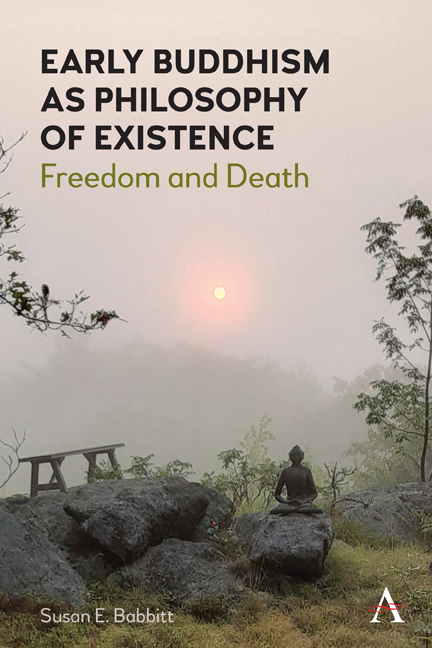Summary
And you would accept the seasons of your heart, even as you have always accepted the seasons that pass over your fields.
And you would watch with serenity through the winters of your grief.
Kahlil GibranEarly (Theravada) Buddhism is philosophy of existence. Many practitioners are not ‘Buddhist’. They practise vipassana meditation as art of living, a way of knowing and realizing human potential. It is a way of thinking about freedom and death. These ideas are the focus of this book. They matter to how we live, day by day, as individuals. And they matter for global justice.
They matter for truth – about existence. The Buddha's view of morality is different from commonly assumed. He understood the moral order as the necessary fixed result of good or bad action. For instance, expression or even thought of anger is loss of beauty – for oneself. Every good or bad action affects us and remains with us. It means that morality is in the first instance existential.
The Buddha said, ‘All beings own their deeds, inherit their deeds, originate from their deeds; are tied to their deeds; their deeds are their refuge. As their deeds are base or noble, so will be their lives.’
An epidemic of loneliness rages and some blame social media. Others urge connection to nature, including wild animals. It is a popular theme. But connecting with nature is not a matter of will. It can't simply be chosen any more than one can choose to run a marathon. The mind needs training as the body needs training. Connection to nature is learned, and it has to do with thinking.
The way we think, being self-centred, opposes the essential truth of nature, which is constant change. The idea of an enduring, transparent self alienates us from nature, which is in flux, always ephemeral. It prevents us from understanding the sort of effort required to know nature as it is.
The universe contains mostly dark energy. Yet we think of ourselves as secure, enduring entities, enthralled by ‘light at the end of the tunnel’. The beauty of darkness, which after all explains health, is metaphorically challenging.
- Type
- Chapter
- Information
- Early Buddhism as Philosophy of ExistenceFreedom and Death, pp. 1 - 8Publisher: Anthem PressPrint publication year: 2022



